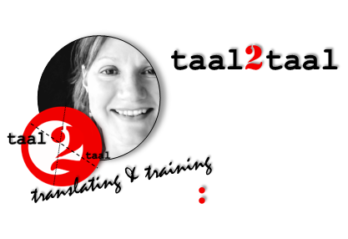How to survive in the Netherlands: everything you need to know about learning Dutch
Marja de Reuver | 17 February 2022
I used to work in an art center and one of my colleages there was British. One day he went to the supermarket where he asked the girl at the checkout counter: Do you speak any English?
She said no.
And then she went completely silent, her eyes trying to avoid his.
Yeah, it made me feel pretty awkward, he concluded.
Real life doesn't happen in your little expat bubble
You may think you are doing pretty good in your job where everybody speaks English. You have no problems when you go shopping and when you go out you speak to other expats. In English.
But did you ever wonder why the international company you work at (you know the one where everybody speaks English all the time), makes a point of always communicating in Dutch to Dutch people?
And what if you want (or have) to look for another job?
The idea that people in this country speak English in every organisation is a myth. Even though sometimes it may look like that in your little expat bubble.
Are you just getting by?
Yes, most expats in the Netherlands can get by in English just fine. And apart from some Dutch people, most of the contacts they have speak English anyway.
Of course you could ask yourself if getting by is enough when you are trying to build a life here. Did you not have greater expectations when you decided to leave the country you were born and probably grew up in?
And don't you want to understand the country you live in and its culture better?
I am sure you want be more intellectually and culturally stimulated. I know you want to go and see the comedian that everybody is talking about.
I know that you want to understand what is going on in politics and what the quality papers have to say about it.
And maybe you want to participate in commenting on a talkshow on television or that new podcast.
Or do you really want to be an outsider forever?
But everybody speaks English in the Netherlands
Really?
It's true that most people can speak English reasonably well.
But most people do not speak English all the time.
Quite the opposite actually.
Most of the time most Dutch people speak Dutch.
And that could make you feel quite lost sometimes. Missing what everybody was laughing about. Not knowing what your children are talking about or what it is that they learn in school.
So how to learn Dutch effectively?
The good news is that you can practise Dutch all the time. And you can get feedback immediately. And what's more, it is pretty useful too. Over 25 million people in the world are speaking Dutch as a first language.
Let me explain a little something about how learning works, starting with the experiences of Idris. In the 1980's Idris came from Turkey to start working in the Netherlands:
"When I started out at the Verkade factory I could hardly speak any Dutch. But being around Dutch people every day I started to repeat what they said and that's how I learned. I got better and better.
And then my boss decided to put all foreign workers together.
All these other Turks, they didn't speak proper Dutch. I make many mistakes when I speak Dutch now and I know it. But I don't know how to do it right because everybody around me speaks like this. They all make the same mistakes."
With immersion you can achieve near native level
Having lived in a country for a long time is no garantee for fluency. Apart from some vocabulary, your learning will stagnate at some point.
But when you immerse yourself in the Dutch language you can actually achieve near native level. The quality of the language contact is crucial though. So speaking with Dutch natives could obviously benefit you because you hear how it's done.
But there is more.
Using your new language on a daily (or weekly) basis will make you feel the need to learn. And that is how it gets easier.
When you then find out how to form a good sentence or how to use new words you will remember it so much better. Strong motivation helps you learn.
And vice versa.
What you have learned in the Dutch lessons you can understand, acquire and remember so much better when you use or perceive it in daily life.
When your native language sounds nothing like Dutch
This mostly affects the recognition and pronunciation of certain sounds.
When it doesn't exist in your first language or if there is no distinction in meaning between sounds (like p en b) you will not perceive it (as different) in Dutch. For example papa and baba is similar in the Moroccan language. So Moroccans may not recognise the difference between paard and baard in Dutch.
But let's not forget, when your native language is very similar to Dutch, like English or German, then so called false friends can be quite confusing. Or did you think that the Dutch word braaf has anything to do with heroism? And make sure you arrive on time when your Dutch friend wants to meet at half tien.
Learning to learn
Having a good education will be useful for learning a new language if you can use written language as a tool. And of course if you have experience in learning, if you know how to learn it helps you.
When you are an expat, it's likely that English is your second language and studies have shown that every new language gets easier to learn. Especially when the new language is so closely related to English, like Dutch is.
On the other hand it is obvious that higher educated people will acquire a language much faster if they support their daily practice with learning grammar and vocabulary explicitly.
But sometimes people with very little education show remarkable progress in acquiring a new language. Also intelligence does not neccessarily play a role in learning for day to day use. Christopher Taylor is an example of someone with limited intelligence who is fluent in at least 15 different languages.
So, if he can do it...
Extraverted people will learn a language much faster than introverts
Or so they say...
Is it true though? First of all this is quite difficult to test in people from different cultures. Things that are considered open and spontaneous in one culture could be regarded as inappropriate or rude in another.
And also it matters which skills are tested. You can imagine that an extraverted person would do well in communicative tasks, but an introvert might make more progress with reading and writing.
Children don't learn a language faster
But you are afraid that it is very hard to get fluent in a new language when you are not a child anymore. Well let me take care of that myth right away.

Children don't learn a language faster than adults.
It may appear so because they seem to be chatting away with other children in no time. But don't forget that the vocabulary of children is not that vast yet and the topics they talk about not as complex as the ones adults tend to discuss.
And children go to school where they interact with other children for hours every day.
Imagine you would practise for hours every day(!)
Also children are compared to other children who, even if they are native, are not fully developed in the language either.
But children do have one advantage, when you start young you have a bigger chance of becoming a (near)native speaker, especially where pronunciation is concerned.
It just takes a little longer...
Start learning Dutch already !
I would never claim that learning Dutch is hard. But you need to do it the right way.
Start learning Dutch and along with it you will learn how Dutch people actually communicate, you will get more understanding of their culture, habits and mentality. You will become part of something and feel more included.
So, what are you waiting for?
You want to take the plunge and finally start learning? Have a look at my Dutch course: learning Dutch in small groups of international professionals.


